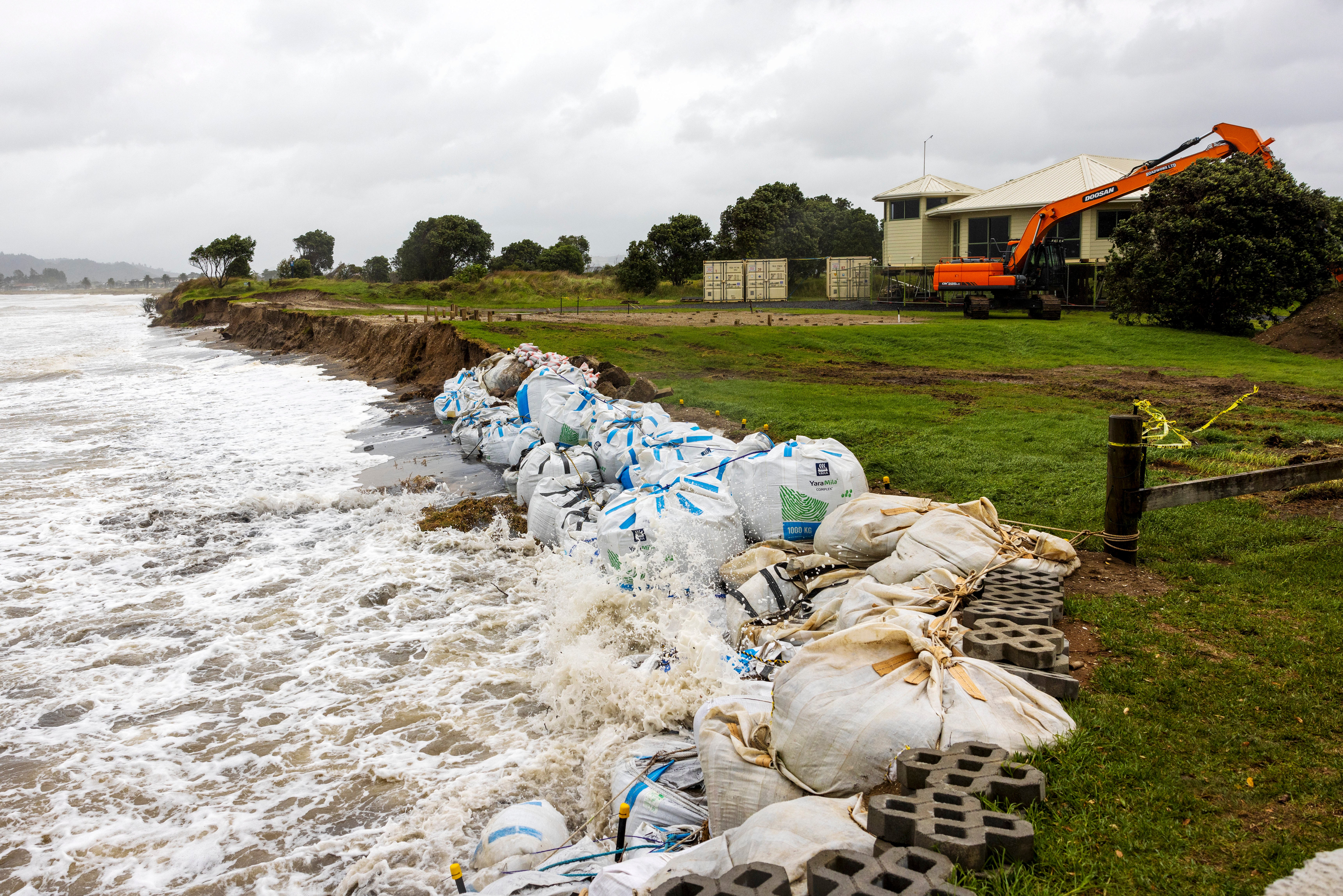New Zealand cancels dozens of flights amid cyclone Gabrielle warning
Schools shut down and bus services are curtailed as Hopkins urges citizens to take warning seriously

Your support helps us to tell the story
From reproductive rights to climate change to Big Tech, The Independent is on the ground when the story is developing. Whether it's investigating the financials of Elon Musk's pro-Trump PAC or producing our latest documentary, 'The A Word', which shines a light on the American women fighting for reproductive rights, we know how important it is to parse out the facts from the messaging.
At such a critical moment in US history, we need reporters on the ground. Your donation allows us to keep sending journalists to speak to both sides of the story.
The Independent is trusted by Americans across the entire political spectrum. And unlike many other quality news outlets, we choose not to lock Americans out of our reporting and analysis with paywalls. We believe quality journalism should be available to everyone, paid for by those who can afford it.
Your support makes all the difference.Dozens of flights are cancelled and schools are shut down in New Zealand as Auckland, the country’s largest city, is bracing for cyclone Gabrielle which is expected to bring a heavy deluge.
The country’s largest carrier, Air New Zealand, has announced the cancellation of all domestic flights to and from Auckland until midday on Tuesday, as well as many international flights.
Some international routes would remain operational, according to the airline, though flights from Auckland may be diverted.
The carrier also cancelled domestic flights to and from the cities of Hamilton, Tauranga and Taupo.
While there’s no official order from the ministry yet, certain services like the InterCity bus network have also announced a reduction in their service routes.
Meanwhile, over 36 schools and universities across Auckland will close from Monday, Radio New Zealand reported.
As the cyclone made landfall in New Zealand’s Northland region on Sunday, flooding and high winds shut down some roads and knocked out power to thousands of homes.
Cyclone Gabrielle was downgraded to a post-tropical cyclone on Saturday, but it is still considered a “widespread and significant” weather event by the country’s Met Service.
Up to 250 millimetres of rainfall is forecast to fall on Auckland as a result of the storm, with gusts of about 130 kilometres per hour and significant waves also expected.
Chris Hipkins, the newly-elected prime minister of New Zealand, has issued a call to all citizens to take the storm warning seriously and to curtail travel that isn’t necessary.
“Please do take this seriously, we do expect severe weather is on the way,” Mr Hipkins told reporters in a briefing on Saturday.
“So please make sure that you’re prepared. Make sure that you’ve got preparations in place for either if you have to stay put for a period of time, or if you have to evacuate.”
Earlier, the cyclone passed near remote Norfolk Island, a territory of Australia that is home to about 1,750 people, resulting in some debris on the roads and disruptions in some power lines.
“We have been extremely fortunate with the passage of the cyclone as the most destructive winds have just missed us,” Norfolk Island’s emergency management controller, George Plant, wrote in an update on Facebook.
“However, there is still considerable clean-up to be undertaken and it may take a while for services such as power to be restored.”
Two weeks ago, Aucklanders witnessed the city’s wettest day ever recorded, with the amount of rain that would normally fall over the entire summer falling in a single day.
Rapidly rising floodwaters killed four people, caused widespread devastation, and rendered hundreds of homes uninhabitable.



Join our commenting forum
Join thought-provoking conversations, follow other Independent readers and see their replies
Comments